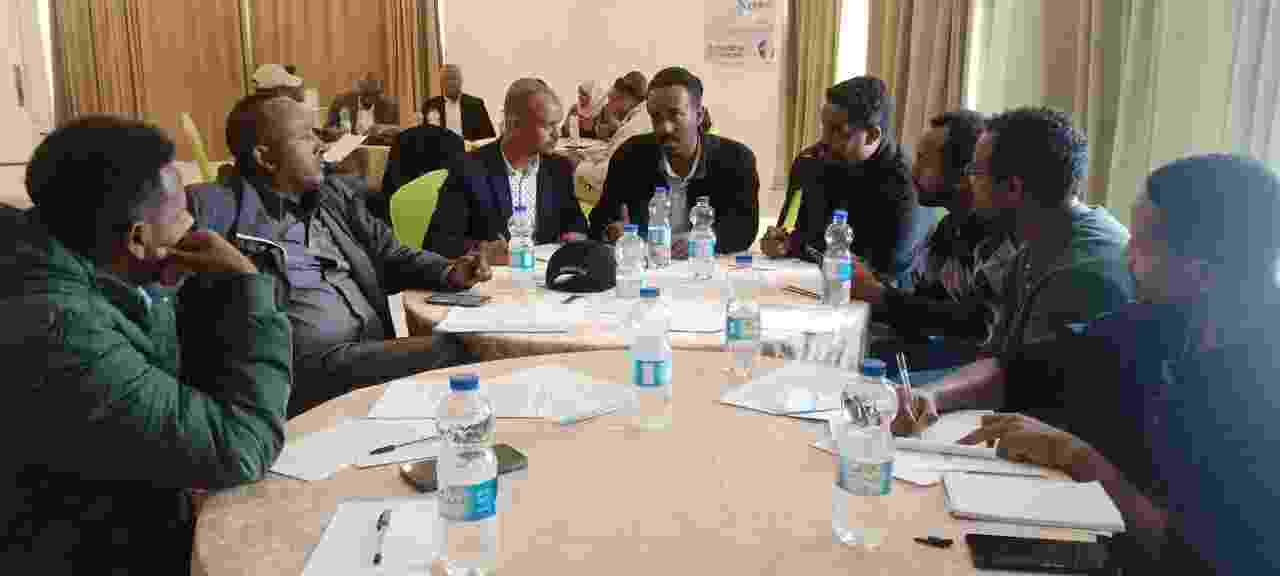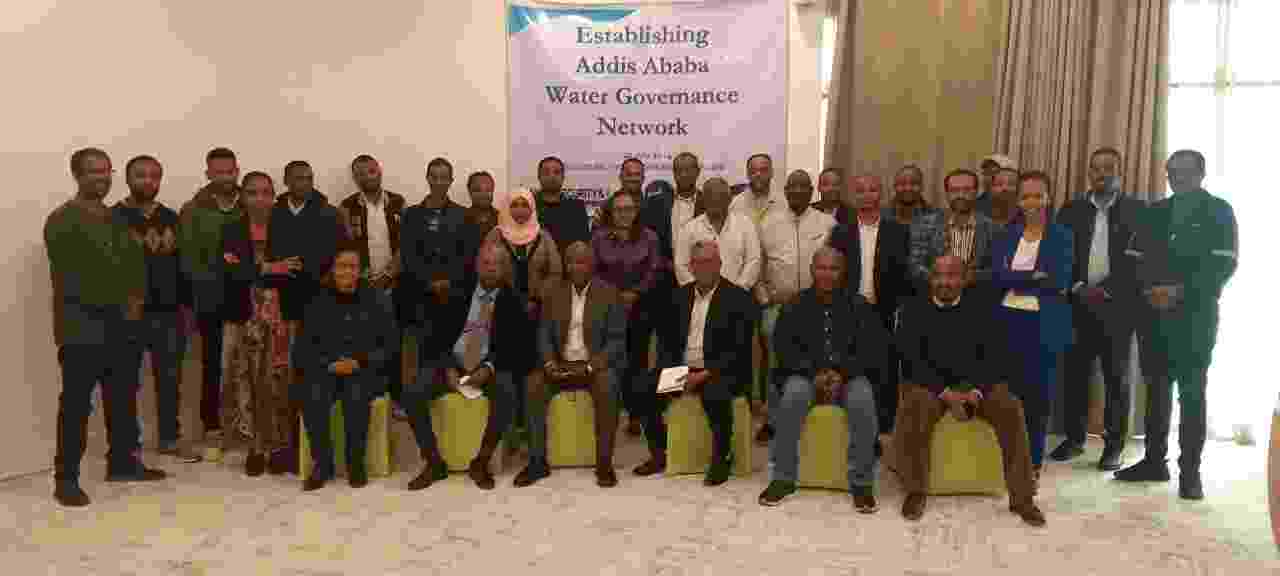Unlocking the Power of Partnership to Address Water Governance Challenges in Addis Ababa, Ethiopia
16 August 2024
Authors: Alemseged Tamiru Haile, Mengistu Dessalegn, Yonas Tafesse, Andualem Mekonnen, Addisalem Bitew and Alan Nicol [1]
The gap between water supply and demand in African cities is growing at an alarming rate due to rapid urbanization. Addis Ababa, one of Africa’s fastest-growing cities, mostly relies on surface water to meet sky-rocketing demand. This is a high-risk strategy, as the water quality of the city’s rivers has deteriorated significantly in recent decades due to more intensive domestic usage by a burgeoning population and increasing water demand from industry. In the absence of practical water governance approaches and structures, this major international hub faces growing pressures and risks.
To effectively address these challenges, the International Water Management Institute (IWMI) and its partners began scientific research that focused on water security, governance and water values within the Akaki River basin, the major drainage basin for the city. Under three core projects: the GCRF Water Security and Sustainable Development Hub, One Health, and REACH, these studies identified critical gaps in water governance that hinder effective water risk management in Addis Ababa, and pointed to the need for a single governance platform to facilitate knowledge and experience exchange.


Inception and Developmental Phases of the Network
Beginning in April 2022, IWMI and partners in government and the research community began discussions on establishing an Addis Ababa Water Governance Network (AAWGN). Key experts met again in January 2023 and further refined the focus of the platform to also co-identify interdisciplinary solutions to governance challenges.
Based on these meetings, IWMI and key stakeholders continued developing the structure of the platform, involving both core and wider groups of stakeholders. The core group comprises key water institutions, the mandates of which link directly to management and control of flooding, pollution, water scarcity, and associated impacts, while the wider group includes research institutes (Addis Ababa University (AAU), IWMI, Ethiopian Engineering Corporation, etc.), implementing organizations (e.g. Addis Ababa Fire & Disaster Risk Management Commission (AAFDRMC) and Addis Ababa Water & Sewerage Authority (AAWSA)), policy makers (Ministry of Water & Energy (MoWE)), communities, private sector actors, investors, as well as NGOs.
Having established the basic structure of the AAWGN with core group members, IWMI and partners then conducted key informant interviews to further refine an approach to operationalization of the wider network. Eleven sector offices of the Addis Ababa City Administration were identified as key to flood risk management in the city with the AAFDRMC taking a principal coordination role. In particular, flood management in the city faces significant challenges including inadequate coordination, communication gaps, lack of general awareness, gaps in law enforcement, unfavourable siting of new settlements, and poor drainage infrastructure.
To further accelerate the formalization of the AAWGN, IWMI and partners convened a consultation workshop in February 2024 to further identification of stakeholders involved in water governance, evaluate major governance challenges and propose solutions. This meeting provided insights into the city's existing water governance system through research presentations and stakeholder dialogue.
Several institutions, including AAEPA, MoWE, AAWSA, AACRA, AAIB, and others, have mandates on water pollution control and management in the city. However, challenges identified included weak collaboration among stakeholders, lack of commitment, weak law enforcement, lack of information sharing mechanisms, and insufficient human and financial resources. In establishing the network, participants identified the need for sub-groups focusing on flood governance, pollution control, water supply management and research and outreach activities. It was also recommended to establish binding laws and/or a Memorandum of Understanding to ensure the sustainability of the network.


Launching the Network
Speaking at the launch workshop, Mr Essayas Girma, Delegate with the Addis Ababa Mayor’s Office, emphasized the importance of re-igniting knowledge sharing, collaboration, and partnership to effectively address water governance challenges across the city. It was agreed that the AAFDRMC and AAWSA would assume the leadership roles of chairman and secretary, respectively, and that the African Centre of Excellence for Water Management of AAU would serve as co-chair. The leadership roles will be on a rotational basis to ensure stakeholder participation and good governance.
Mr Essayas officially launched the AAWGN on July 20, 2024. He further reaffirmed his office’s strong commitment to helping realize the network’s goals and ensuring its sustainability.
For more information, please reach out to Dr Mengistu Dessalegn (M.Dessalegn@cgiar.org), Dr Alemseged Tamiru (A.T.Haile@cgiar.org), or Dr Alan Nicol (A.Nicol@cgiar.org).
[1] Mr Yonas Tafesse, Communications Consultant with IWMI East Africa (IWMI-EA), Dr Andualem Mekonnen, Assistant Professor with AAU, Dr Addisalem Bitew, Hydro-Climate Expert with EEC, Dr Alan Nicol, Team Leader for Governance, Gender, and Poverty with IWMI-EA, Dr Mengistu Dessalegn, Senior Researcher, Gender and Social Inclusion with IWMI-EA and Dr Alemseged Tamiru, Senior Hydrology Researcher with IWMI-EA.



